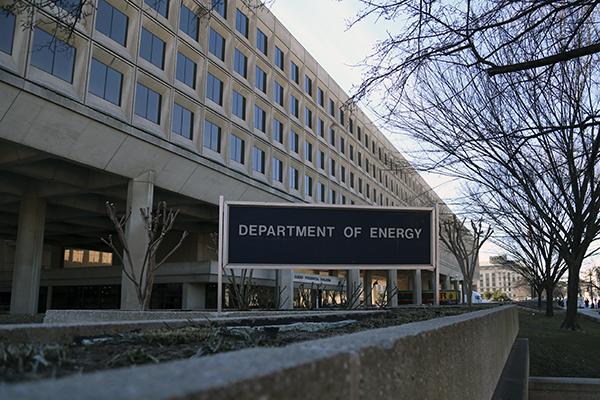Four GW researchers will join eight universities in a nuclear science and security research consortium.
GW will join the University of California, Berkeley and other institutions for a $25 million grant from the National Nuclear Security Administration that will begin in July. Investigators on the grant said the nuclear workforce is in need of scientists and the award will help educate students on both the policy and science behind nuclear energy.
Berkeley is continuing the consortium from a previous five-year grant and GW will join the revamped program. The Elliott School of International Affairs, the GW Law School, the School of Engineering and Applied Science and the department of chemistry joined forces in applying to and joining the consortium.
Doug Shaw, the senior associate provost for international strategy, said during the Board of Trustees meeting this month that the $1.7 million GW will receive from the grant will work “to prevent proliferation of nuclear weapons and the possibility of nuclear terrorists.” He said that partnerships like those allow GW to respond to “global human problems.”
“Many universities must seek international engagement only far from home, we can also achieve it right on campus,” Shaw said. “It can extend our teaching, research convening and brand capacities all over the world.”
Allison Macfarlane, a professor of public policy and international affairs and the former chair of the U.S. Nuclear Regulatory Commission, said researchers at Berkeley were interested in working with GW, and it’s rare to see four researchers from different schools at the University come together for one project.
“This is one of the few times where four different schools at GW are working together collaboratively,” Macfarlane said. “So that part is really exciting to our little local angle.”
Macfarlane came to GW two years ago with a goal of encouraging more interdisciplinary efforts on nuclear and energy research. She said the GW investigators were brought together by common interests in nuclear energy.
Macfarlane said that the main focus of the project will be to teach courses in nuclear security policy and they anticipate starting a two-week summer boot camp that will be open to all graduate students in the consortium.
“We are going to be doing courses that students at some of these other consortium universities will have a telepresence into,” Macfarlane said.
She added that those who have technical training in nuclear science need to understand the security and policy implications of nuclear materials. Macfarlane said that the same materials that power nuclear energy plants also power nuclear weapons.
“It is important to really understand how to keep those materials secure and what the larger political implications of the work might be,” Macfarlane said.
Macfarlane said Philippe Bardet, an assistant professor of engineering and applied science, and Chris Cahill, a professor of chemistry and international affairs, will be leading research projects relating to nuclear energy. She said she will focus her research on nuclear waste from the Japanese fuel cycle, and all of the researchers plan to include predoctoral students in their research.
Emily Hammond, a professor of law and researcher on the grant, said she will be helping to develop a course on nuclear policy and law that she will co-teach with Macfarlane. She said she will also help develop the curriculum for a summer boot camp, which will focus on the law and policy behind nuclear science.
“We can hope, encourage and facilitate better procedures for public participation and really better-rounded professionals whether they are in science, law or policy,” Hammond said.
Hammond said this grant will help increase the nuclear profile at GW and strengthen cross-disciplinary initiatives. She said she hopes the educational programs will excite students about the nuclear field and will increase participation in the field in coming years.
“After five years, we will have students graduating and doing the law and the policy and the science, so I am really looking forward to it growing from there,” Hammond said.





